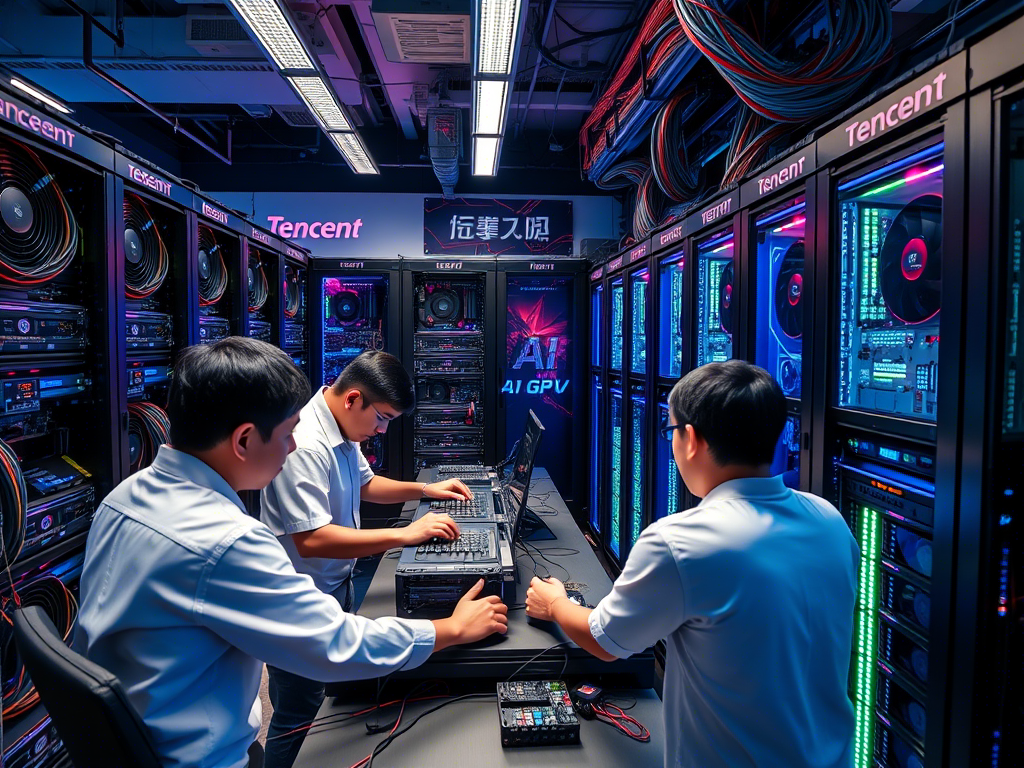Tencent Builds Up AI Chip Reserves Amid Search for Alternatives

Tencent Builds Up AI Chip Reserves Amid Search for Alternatives
During a recent earnings call, Tencent confirmed it has secured a strong reserve of GPUs, helping support its AI initiatives. When questioned about the impact of U.S. export restrictions on advanced chips, company president Martin Lau appeared unfazed, emphasizing the firm’s preparedness.
In response to a query from UBS analyst Kevin Fong, Lau described the GPU landscape as fluid but offered reassurance, stating that Tencent had acquired a significant stockpile of chips—crucial for advancing its AI strategy.
While investors may be relieved to hear these resources are being used effectively in areas like advertising, Lau also hinted at a broader strategic shift. Tencent, he explained, is moving away from the “scaling law” approach favored by many U.S. tech giants, which relies on ever-larger models. Instead, the company is focusing on smaller, more efficient clusters that still deliver strong performance.
Tencent Sees Long-Term AI Chip Readiness and Software Optimization
Tencent’s President Martin Lau expressed confidence that the company’s current supply of high-end chips will support its AI model training for several future generations. This assurance comes amid ongoing concerns over global chip supply constraints.
On the software front, Tencent is focusing on boosting inference efficiency. Lau noted that by improving software performance, the company could effectively double its GPU capacity — a key step in managing costs and scalability.
Looking ahead, Tencent is also exploring alternatives to Western-made GPUs. Engineers are evaluating various AI accelerators, including ASICs and other GPU options, whether sourced domestically or through permitted imports.
Lau emphasized that Tencent has multiple strategies to meet rising AI demands, without relying solely on traditional GPU purchases from Western tech providers.
Tencent’s GPU Investments Surge by Nearly 300%
Despite strategic management of its GPU acquisitions, Tencent has significantly ramped up spending. Recent financial reports show operating capital expenditure reached RMB26.4 billion ($3.6 billion) — a nearly 300% increase year-over-year — largely driven by investments in GPUs and servers to boost AI capabilities. This surge has notably affected the company’s free cash flow.
Have U.S. Export Controls Backfired?
For years, the U.S. and its allies have restricted the export of advanced GPUs to China over concerns that the technology could enhance military capabilities hostile to the West. However, these measures may not have had the intended effect.
Sanctions enforcement has often been weak, allowing workarounds. Over time, China has developed its own software and hardware solutions, reducing reliance on Western AI technology. Today, Tencent’s leadership appears unfazed by U.S. trade restrictions, signaling a growing domestic AI ecosystem capable of supporting the company’s long-term ambitions.





